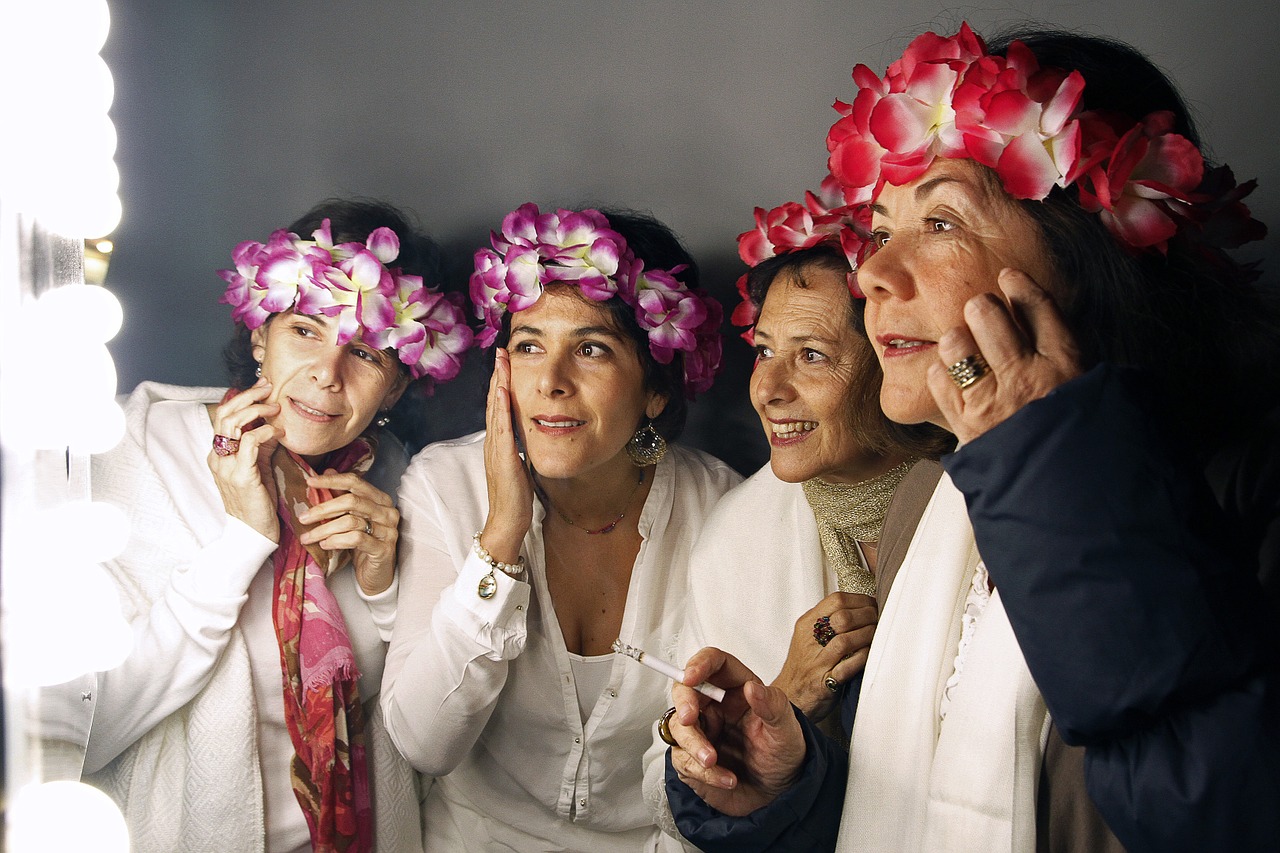
Our friends Ana and Pedro came over one night to toast their purchase of a new home. They were really excited about the renovations they were planning, the shrubs they’d plant, the generator they’d install, and so on.
“Well, the little old lady next door -I forgot her name- has a generator, and she said she wouldn’t mind if the contractors park on that space along her driveway,” said Ana. “Yeah, the little old lady’s so excited we’re moving in,” she went on.
“Hold on a minute Ana,” Pedro interrupted. “That little old lady’s the same age you are.”
“But I don’t look her age!” Ana shot back.
Well, I’ve never met the little old lady and can’t really say for sure. What I can say is Ana, who’s 60, looks, dresses, and acts youthful. I must also clarify we were speaking Spanish and “la viejita” doesn’t sound nearly as disrespectful and ageist as “the little old lady” does to me, a non-native speaker of English.
The point is how disconcerting it is when you don’t physically relate to your same-aged peers once you get to a certain age. And when I say “don’t relate” I mean we’re convinced we don’t look as old.
Sure, as a teenager, I recall being in disbelief that this or that person was my age. They looked so much older! But that was because older meant more sophisticated and womanly, not old, old.
The unsettling feeling is very different when you’re 60, like Ana, or 52, like myself. And, sadly, it has a lot to do with how engrained ageism is.
According to the World Health Organization‘s definition,
“Ageism refers to the stereotypes (how we think), prejudice (how we feel) and discrimination (how we act) towards others or oneself based on age.”
The only aspect of our beings others see, literally, is our physical appearance, and how we look depends on our physical bodies and what we choose to cover and alter them with. Our looks affect our sense of self, which we also shape through our choices in hairstyle, clothes, make-up.
But where does our preoccupation with our looks turn into ageism?
If ageism encompasses how we act toward others and ourselves based on age, where do we draw the line between a healthy sense of self and ageism? Is it when we begin to color our hair? When we get Botox? When we have plastic surgery?
I’ve said things like Ana. In fact, I said one that very night. My husband, Cesar, was talking about a movie actor whose autistic son is served by the same agency as Diego, our autistic adult son.
Our friends didn’t recognize the actor’s name and I described him as being much older than us. Pedro eventually googled the guy to see his picture, only to discover he’s only 52.
“But I don’t look his age,” said I. “No way, I’m way younger! Maybe he’s sick or something.”
“Come to think of it,” Pedro said, “I heard he hasn’t been in any movies lately due to some health condition or other.”
Again, whether or not he’s unwell or whatever is not the point. It’s the experience of aging outwardly that, among other things, shakes up our sense of who we are, especially for women.
Due to ageism, looking old does make a lot of us feel diminished. I don’t like the wrinkles and sunspots on my face, and positively hate the folds beginning to form between my chin and neck, even though none of these physical changes affect how my body feels. I am, luckily, super healthy and have as much energy as I did two decades ago.
There’s no way around it, the reason I so dislike my body’s visible signs of aging is, largely, that I’m ageist.

